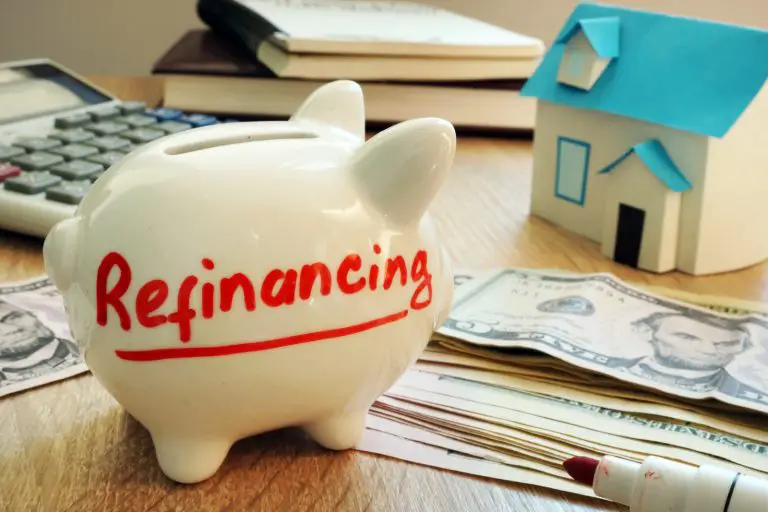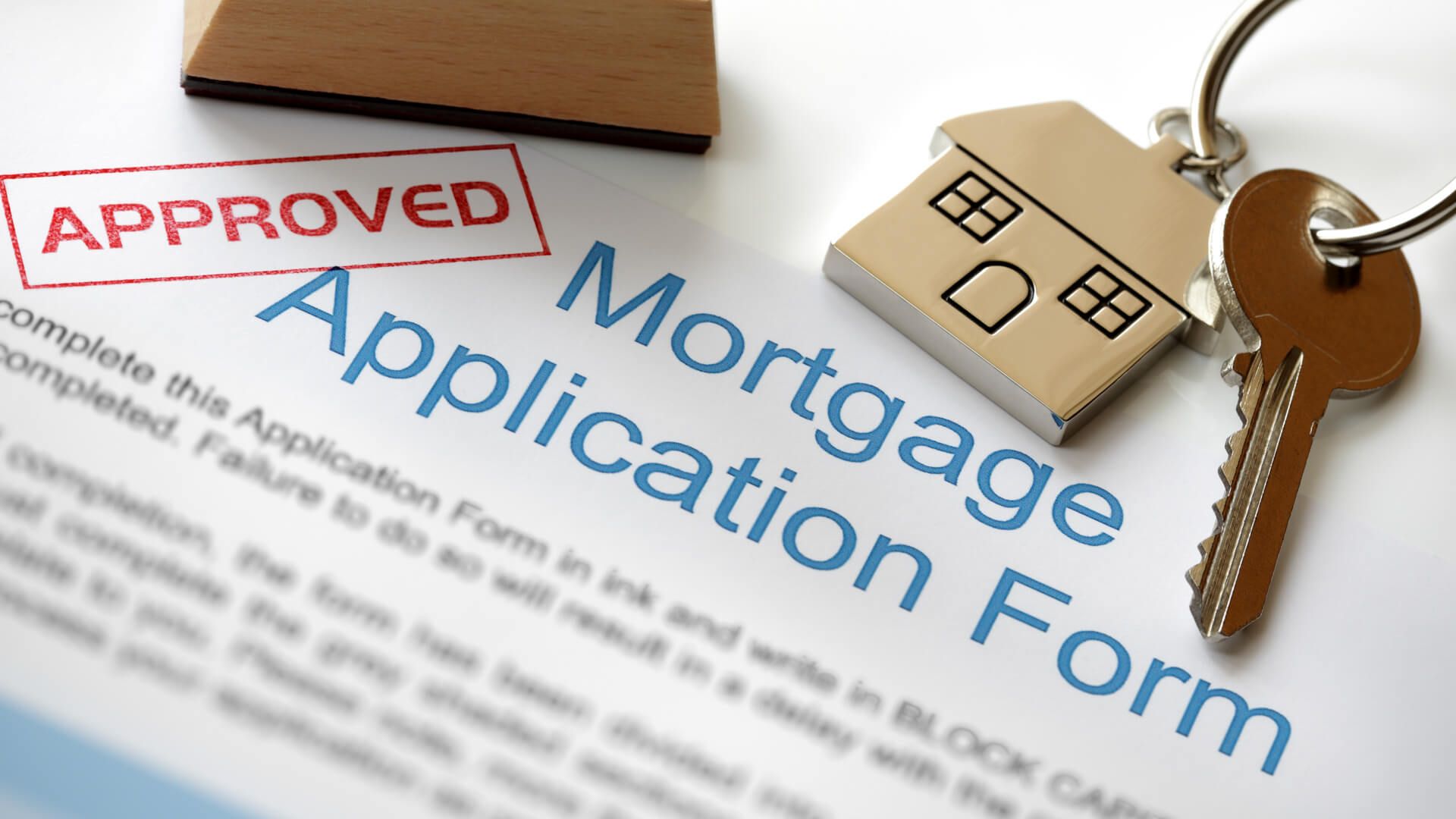Eligibility For A Reverse Mortgage Refinance
Not all borrowers are eligible to refinance their reverse mortgage. Youll be in better shape for refinancing if you meet the following criteria:
- Mortgage holder must be 62 years or older.
- History of on time payments with taxes, insurance and premiums.
- Cant be delinquent on any federal debt.
- Must be using the home as a primary residence.
- Must prove your ability to pay all costs associated with the home including taxes, insurance and HOA fees.
- Own your home outright or have a low mortgage balance thats paid off in the reverse mortgage refinancing
- The home must meet FHA requirements.
If you choose to refinance your reverse mortgage through a private company, your eligibility requirements may vary.
Required documents
Have these documents on hand before starting the refinancing process:
- Government-issued ID, such as a drivers license
- Proof that the property youre refinancing is your permanent address
- Proof of income
- Proof of reverse mortgage loan counseling, which is not always required depending on your eligibility
What Are Reverse Mortgages
Reverse mortgages allow homeowners who are 62 years and older to convert a portion of their home equitythe current homes value minus the remaining mortgage balanceinto cash in the form of a loan, or a line of credit. Typically, homeowners will receive their funds monthly and are not obligated to repay the loan as long as they live in the house, or until you or your heirs sell the house. This is one way of tapping equity without selling the home.
Once the borrower moves out or is deceased, the loan must be repaid. Sometimes, the property has to be sold in order for the loan to be repaid. This also means the heir to your home will have to do it. However, there are other ways to repay whats owed, including refinancing the reverse mortgage into a traditional mortgage and repaying the amount in installments.
The most popular reverse mortgage is called the Home Equity Conversion Mortgage , which is the only government-insured reverse mortgage available. Borrowers can access HECMs through lenders approved by the Federal Housing Administration
As home prices and equity have soared in the past year overall, homeowners 62 years and older also saw a bump in their home equity as well, up 3.4% to $9 trillion in the first quarter 2021 from the previous quarter. And as people use reverse mortgages to fund their retirement, the number of reverse mortgages has grown the past few years.
Where To Get A Reverse Mortgage
Two financial institutions offer reverse mortgages in Canada. HomeEquity Bank offers the Canadian Home Income Plan , which is available across Canada. You can get a reverse mortgage directly from HomeEquity Bank or through mortgage brokers. Equitable Bank offers a reverse mortgage in some major urban centres.
Shop around and explore your options before you get a reverse mortgage. Your financial institution may offer other products that might meet your needs.
Compare the costs of the following potential alternatives to a reverse mortgage:
- getting another type of loan, such as a personal loan, line of credit or credit card
- selling your home
- renting another home or apartment
- moving into assisted living, or other alternative housing
You may want to speak with a financial advisor and your family before getting a reverse mortgage. Make sure you understand how a reverse mortgage works and how it can affect your home equity over time.
You May Like: Reverse Mortgage For Condominiums
Shopping For A Reverse Mortgage
If youre considering a reverse mortgage, shop around. Decide which type of reverse mortgage might be right for you. That might depend on what you want to do with the money. Compare the options, terms, and fees from various lenders. Learn as much as you can about reverse mortgages before you talk to a counselor or lender. And ask lots of questions to make sure a reverse mortgage could work for you and that youre getting the right kind for you.
Here are some things to consider:
Reverse Mortgage Differences From Traditional Loans

When it comes to comparing reverse mortgages with traditional loans, there are many similarities and differences.
Reverse mortgage and traditional loans both allow you to borrow money based on the equity in your home. The biggest difference between these two is that you do not need to pay monthly payments on the reverse mortgage. But, in case of a traditional loan you have to make monthly payments.
The reverse mortgage pays off your traditional mortgage first, and you can use the remaining money in any way you want. Also, with a reverse mortgage, you have protection against declining home values because it is a non-recourse loan.
Don’t Miss: Does Rocket Mortgage Service Their Own Loans
Put Your Home Equity To Work For You
Get Your Free Reverse Mortgage Quote
By clicking “CALCULATE”, you are providing your signature and express “written” consent to be contacted by or behalf of Reverse Mortgage Funding LLC, its affiliates and/or its agents at the telephone, email or mailing address that you have provided for purposes of fulfilling this inquiry about reverse mortgages and/or the Company’s products or services, even if you have previously registered on a “do not call” government registry or requested Company to not send marketing information to you by email and/or direct mail. You agree that the Company may use automatic telephone dialing systems and prerecorded voice messaging in connection with calls or texts made to the telephone number you provide even if the telephone number is assigned to a cellular or mobile telephone service or other service for which the called party is charged. You understand that you are not required to consent to receiving autodialed calls or texts as a condition of any reverse mortgage and/or purchasing any Company products or services. If you do not wish to authorize Company to contact you in this manner, you can call to complete your request. You understand that you can revoke this consent at any time.
- About Us
The Bottom Line: It’s All About Your Finances
Managing loans on a fixed income as a senior citizen can be challenging but it isnt impossible. Make sure you include all of your income when you apply. You can also improve your chances of a refinance by sticking with your current lender and maximizing your appraisal value.
Ready to get started? You can start your refinance or mortgage application online now.
Protect what’s precious
Recommended Reading: Can You Refinance A Mortgage Without A Job
Reverse Mortgage Equity Requirements
Home equity is calculated by subtracting the appraised value of your home from any outstanding secured loans against it. Some reverse mortgage equity requirements are:
- Any outstanding secured debt on the home must be larger than or equal to the total amount you can borrow.
- Your home must be worth at least $200,000 to qualify for a reverse mortgage.
What Is The Most Common Kind Of Reverse Mortgage
The most common type of reverse mortgage is the HECM, or home equity conversion mortgage, which can also be used later in life to help fund long-term care. HECM reverse mortgages are made by private lenders but are governed by rules set by the Department of Housing and Urban Development . The current loan limit is $822,375.
To qualify for this kind of reverse mortgage loan, you must meet with an HECM counselor, which you can find through the HUD site. When you meet with the counselor, they may cover eligibility requirements, potential financial ramifications of the loan and when the loan would need to be paid back, including circumstances under which the outstanding amount would become immediately due and payable. The counselor may also share alternatives.
The reverse mortgage loan generally needs to be paid back if the borrower moves to another home for a majority of the year or to a long-term care facility for more than 12 consecutive months, and if no other borrower is listed on the loan.
However, a new HUD policy offers protections to a non-borrowing spouse when a partner moves into long-term care. The non-borrowing spouse may remain in the home as long as they continue to occupy the home as a principal residence, is still married and was married at the time the reverse mortgage was issued to the spouse listed on the reverse mortgage.
Read Also: Can You Get A Reverse Mortgage On A Condo
How To Repay The Money You Borrow
You don’t need to make any regular payments on a reverse mortgage. You have the option to repay the principal and interest in full at any time. However, you may have to pay a fee to pay off your reverse mortgage early.
You have to repay the amount left owing when:
- you sell your home
- you default on the loan
You could default on a reverse mortgage by:
- using the money from the reverse mortgage for anything that is illegal
- being dishonest in your reverse mortgage application
- letting your home fall into a state of disrepair that would lower its value
- not following any conditions in your reverse mortgage contract
Each reverse mortgage lender may have their own definition of defaulting on a reverse mortgage. Ask your lender what could cause you to default.
When you die, your estate has to repay the entire amount owing. If multiple individuals own the home, the loan has to be repaid when the last one dies or sells your home.
The amount of time that you or your estate has to repay a reverse mortgage may vary. For example, if you die then your estate may have 180 days to pay back the mortgage. However, if you move into long-term care, then you might have one year to pay it back. Make sure you ask your lender for information about the timing for paying back a reverse mortgage.
When A Reverse Mortgage Might Be For You
- You want to age in place and your home can accommodate it.
- Your home needs accessibility improvements for aging in place.
- You dont care about leaving your home to your heirs.
- You want or need cash, and you cant qualify for a mortgage refinance, home equity loan, or home equity line of credit, perhaps because you have bad credit.
- You can afford to keep up indefinitely with homeowners insurance, taxes, and maintenance.
Don’t Miss: Rocket Mortgage Payment Options
What Is Rural Development Financing
Category: Loans 1. Welcome to Rural Development | Rural Development Jul 19, 2019 Home Loan Servicing As a part of USDA Rural Development, our mission is to be a cost-effective service provider that strives to help Single Family Housing Programs · Programs & Services · Browse by State · Careers
When To Consider A Refinance Of Your Reverse Mortgage

Recommended Reading: Recast Mortgage Chase
One Spouse Older And The Other Younger Than Age 62
Under FHA HECM rules, the spouse older than 62 is the borrowing spouse. The spouse younger than age 62 is the eligible non-borrowing spouse. This means after the death of the borrowing spouse, eligible non-borrowing spouses can defer vacating the property and repaying the loan. Whenever a reverse mortgage includes an eligible non-borrowing spouse, his or her age must be used to calculate the loan amount because the potential for deferral increases the possibility of the loan balance outstripping the home value. The rules are the same whether the property is in a community property or a common-law state an eligible spouse doesn’t need to be on the property’s title.
How Much Does A Reverse Mortgage Cost
The closing costs for a reverse mortgage arent cheap, but the majority of HECM mortgages allow homeowners to roll the costs into the loan so you dont have to shell out the money upfront. Doing this, however, reduces the amount of funds available to you through the loan.
Heres a breakdown of HECM fees and charges, according to HUD:
- Mortgage insurance premiums There is a 2 percent initial MIP at closing, as well as an annual MIP equal to 0.5 percent of the outstanding loan balance. The MIP can be financed into the loan.
- Origination fee To process your HECM loan, lenders charge the greater of $2,500 or 2 percent of the first $200,000 of your homes value, plus 1 percent of the amount over $200,000. The fee is capped at $6,000.
- Servicing fees Lenders can charge a monthly fee to maintain and monitor your HECM for the life of the loan. Monthly servicing fees cannot exceed $30 for loans with a fixed rate or an annually adjusting rate, or $35 if the rate adjusts monthly.
- Third-party fees Third parties may charge their own fees, as well, such as for the appraisal and home inspection, a credit check, title search and title insurance, or a recording fee.
Keep in mind that the interest rate for reverse mortgages tends to be higher, which can also add to your costs. Rates can vary depending on the lender, your credit score and other factors.
Don’t Miss: Rocket Mortgage Vs Bank
Include All Your Income
Your lender will ask you questions about your income and assets when you apply for a new mortgage or to refinance your loan. However, lenders dont only consider income from employment when they review your application. Maximize your chances of getting approved by including all streams of income with your application. Some income your lender might consider includes:
- Social Security payments
- Military pension payments and benefits
- Income from rental properties you own
- Payments from your IRA, 401 or other retirement accounts
- Royalty income from patents
The specific streams of income you can include in your application can vary from lender to lender. The most important factor is that the income you have is set to continue consistently. Your lender may exclude certain streams of income that arent long-standing. For example, your lender probably wont consider alimony as income if it is set to end in 12 months.
What To Watch Out For
Refinancing your reverse mortgage is similar to the original application process, but there are some things youll need to watch out for in the process:
- Unexpected costs and expenses. Refinancing your reverse mortgage will come at a cost. Youll need to pay closing costs, premium, origination and servicing fees. Work with your lender to get a detailed rundown of these costs before closing.
- If your homes value has dropped, its unlikely refinancing will benefit you financially.
- Jump in interest rates. You might want to reconsider your timing if interest rates have risen. In this case, you could end up paying more per month after refinancing.
Don’t Miss: Can You Get A Reverse Mortgage On A Manufactured Home
Home Equity Loan Or Home Equity Line Of Credit
Home equity loans and home equity lines of credit provide homeowners access to home equity. But the way borrowers receive the loan proceeds differs. With a home equity loan, homeowners receive a lump sum, while borrowers access funds as needed within a specific time frame with a HELOC.
Unlike a reverse mortgage, home equity loans and HELOCs require borrowers to make payments however, they may come with fewer fees and can be a less expensive alternative to refinancing a reverse mortgage.
Change Your Term Or Get A Different Mortgage
Sometimes your needs change and you may have to pay off your mortgage faster or switch your mortgage type. If you get a bonus at work and want to put it towards your mortgage, consider refinancing into a term with more prepayment privileges, such as an open mortgage. Or, if interest rates have dropped, and you plan to stay in your home for the long haul, you can refinance to a fixed-rate mortgageOpens a popup. to lock in the lower rates.
You May Like: Reverse Mortgage On Mobile Home
How Borrowing On Home Equity Works
You may be able to borrow money secured against your home equity. Typically, interest rates on loans secured against home equity can be much lower than other types of loans.
Not all financial institutions offer home equity financing options. Ask your financial institution which financing options they offer.
You must go through an approval process before you can borrow against your home equity. If youre approved, your lender may deposit the full amount you borrow in your bank account at once.
You can borrow up to 80% of the appraised value of your home.
From that amount, you must deduct the following:
- the balance on your mortgage
- your total HELOC amount, if you have one
- any other loans secured against your home
Your lender may agree to refinance your home with the following options:
- a second mortgage
- a loan or line of credit secured with your home
You Need More Cash Than A Reverse Mortgage Provides

Other home equity options might provide more cash than a reverse mortgage. For example, a cash-out refinance replaces the existing loan with a new loan and the borrower receives a lump sum of cash. Refinancing a reverse mortgage to a cash-out refinance may give a borrower a larger payout than the lump sum payment from a reverse mortgage. However, borrowers who refinance a reverse mortgage to a cash-out refinance will need to make payments.
You May Like: Will Mortgage Pre Approval Hurt Credit Score
